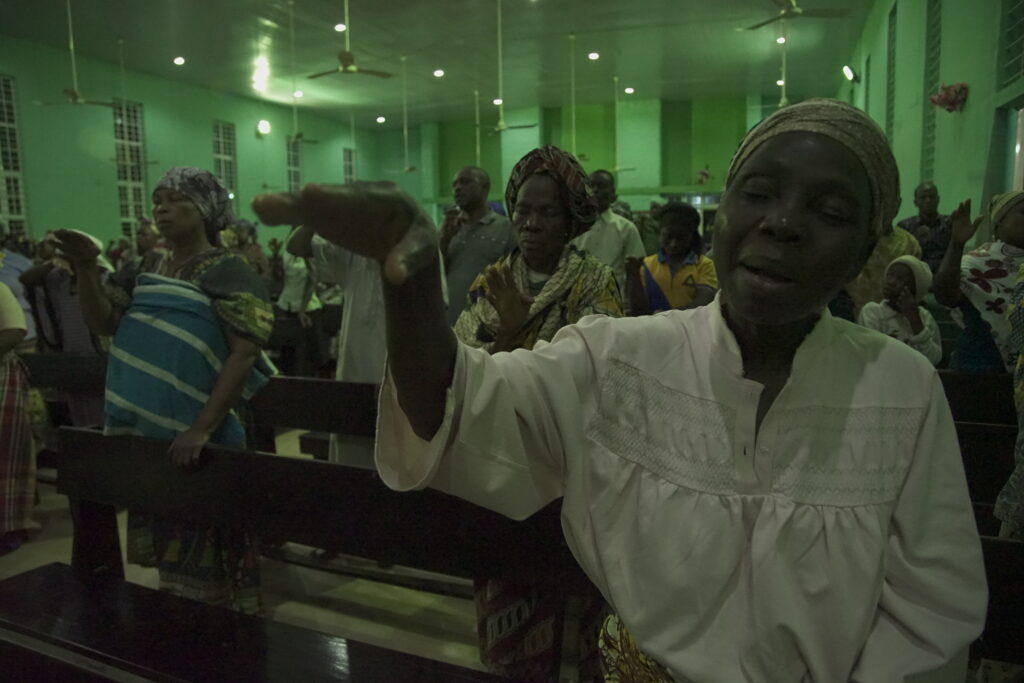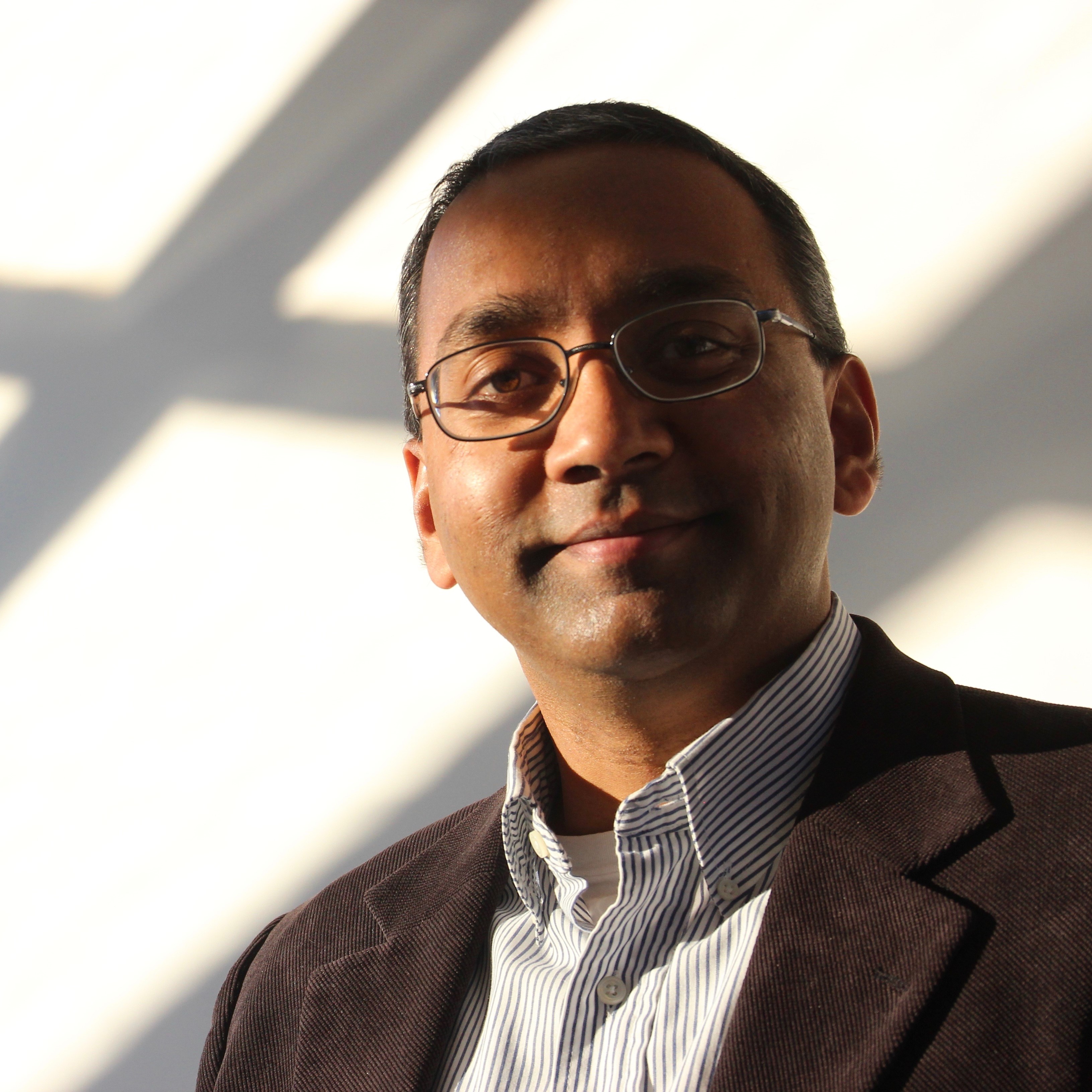
Ebenezer Obadare’s latest book, Pastoral Power, Clerical State: Pentecostalism, Gender, and Sexuality in Nigeria—his second in a planned trilogy on Pentecostalism and Nigerian politics—is driven unapologetically by normative ends and ethical concerns. Central to the book and subject to critique is the figure of the Pentecostal pastor. Obadare spoke with many pastors, and names and describes specific ones at length. He is less interested in their variability, however, than in their commonality and what they reveal about contemporary Nigerian society. Thus, Obadare writes of these pastors in the abstract manner of an archetype: the “Man of God.” This is the new celebrity, the charismatic authority considered sacrosanct across all strata of society, even by political bigwigs. He (that this figure is a man is relevant) is above reproach or challenge, only to be followed and revered, though not entirely blindly thanks to a few brave Pentecostal laywomen (that these figures are women is also relevant).
What concerns Obadare specifically is Nigeria’s decades-long shift in moral authority from the intellectual class to the clerical class, from the “Man of Letters” to the “Man of God.” The 1980s stands as the fulcrum. That was when Nigeria’s military government gutted and coopted the universities, devaluing the Nigerian intelligentsia and particularly the professoriate. Obadare’s driving argument, to quote his clearest articulation, is as follows: “No one doubts that the Nigerian academy is in stasis or that the pastor is regnant. In Pastoral Power, Clerical State I posit a direct causal relationship between the two” (xx). The greatest strength of this book is the clarity of the case. Obadare openly positions himself in solidarity with his embattled fellow Nigerian intellectuals, especially those still laboring as he once did in Nigerian universities. In this book, he is at times a journalist (reporting from the front lines of the battle for recognition), at times a lawyer (carefully mounting evidence against the malfeasance of Nigeria’s new elites), and always an academic (researching and writing his way to both comprehension and, through it, potential transformation of the empirical facts).
In all this, Obadare is the quintessential Man of Letters. And it is hard not to read this book as a lament of and protest against the systematic weakening of the Nigerian intelligentsia. As an academic myself, I cannot but cheer on Obadare’s efforts to rescue Nigeria’s intellectuals from the displacement they have suffered. Moreover, there is a larger story hinted at in this struggle, one that goes beyond Nigeria. That is the crisis of legitimacy faced by elites and experts of all sorts—felt so acutely in countries like the United States and Brazil in their respective populations’ widespread resistance to public health recommendations during the COVID pandemic, in the increasing vitriol directed toward traditional media and news sources, and in the populist movements capable of ushering in authoritarian leaders like Donald Trump and Jair Bolsonaro (both of them, incidentally, closely aligned with Pentecostal and similarly evangelical forms of Christianity).
In arguing strenuously against the anti-intellectualism of contemporary Nigeria, as exemplified by the growing clout of unlettered and uncredentialed influencers, Obadare makes no apologies for the book’s evident antipathy toward Pentecostal pastors: “If the reader detects a whiff of an impatient anti-clericalism within these pages, it is at bottom a yearning for some sort of intellectual restoration, which I happily admit is one of the founding impulses behind the book” (5). This candor is to be commended. Scholarship is not neutral, and Obadare makes clear the existential stakes of this book: “I have tried, as much as possible, to bring [my] personal, intellectual, and emotional formation to bear on my analysis” (18). This level of self-awareness and self-reflexivity is a credit to Obadare’s scholarship. Problematic is not the presence of biases, prejudices, and norms. Problematic is the failure to acknowledge them, the pretense of objectivity that denies how one’s research reflects one’s commitments.
Obadare is the quintessential Man of Letters. And it is hard not to read this book as a lament of and protest against the systematic weakening of the Nigerian intelligentsia.
There are two points on which I invite Obadare to further clarify his central argument. The first is the basic question asked of any scientific study: Are the two conditions—in this case, the decline of the Nigerian intelligentsia and the rise of the Pentecostal pastorate—connected by causation or correlation? Obadare strongly suggests, as in the quote above, “a direct causal relationship between the two.” Yet, throughout the book, he outlines a series of other originating factors—“a many-threaded social process” (4) as he rightly describes it—that include military misrule, economic collapse, the nascency of Nigerian democracy, the retreat of ideological systems, and the weakening of the state. All of these, and potentially any of these, could be posited as the cause of both the decline of the professoriate and the rise of the pastorate, in which case those two phenomena are related through correlation, not through causation. What would such a concession do to Obadare’s argument? It seems it would require a softening of the denunciatory tone against Pentecostal pastors. Their prominence would have to be seen not as the cause of the decline of the intelligentsia, but as the outgrowth of a deeper malaise.
My second point builds on the first one and centers on the question: Why does Obadare seem so determined to isolate the Pentecostal pastorate as the cause or, at least, the prime example of Nigeria’s problems today? There are other spiritual authorities whom Obadare mentions, but always only in passing: “a constellation of ‘divines,’ ranging from seers to palm readers, mediums, psychics, shamans, Muslim clerics, witch doctors, astrologers, and other spiritual practitioners normally characterized as ‘traditional’” (11). All these appear to contribute in some way or emanate out of Nigeria’s current climate of anti-intellectualism. Especially noteworthy but, for that reason, especially conspicuous in the lack of sustained treatment, are Muslim clerics—also Men of God, of course—who could just as well have received equal coverage to that of the Pentecostal clerics, and perhaps ought to have given the undeniably important role of Islam in setting the course of contemporary Nigerian society. Granted, every book requires focus, and there’s no flaw in delimiting one’s study for the sake of clarity and feasibility. Yet, there is a certain irony in attending almost exclusively to the Pentecostal pastor in a narrative lamenting the outsized prominence of the Pentecostal pastor; the choice of focus ends up reinforcing that which is being lamented. One way to decenter Pentecostal pastors in the society at large may be to decenter Pentecostal pastors in a book like this. But that was not the path taken. Why not? And how does Obadare see other charismatic figures fitting into the story of Nigeria’s shift from reason-based to revelation-based forms of authority?
The book’s second half focuses on gender and sexuality as manifest in the discourse and practices of pastors, and in the responses of the mostly female worshippers in Pentecostal churches. It is a credit to Obadare that he takes on such themes still too often ignored in scholarship on African Pentecostalism. In particular, his argument that the “reformation of machismo,” to use Elizabeth Brusco’s phrase well-known to scholars of Pentecostalism and gender, redounds to the benefit of the male pastor is compelling and original. Pentecostal laymen may be domesticated and tamed, disciplined by their faith to be less philandering and more responsible, but that leaves the pastor “the only man left standing in the church” (91), and from this comes the potential for abuses of power in all ways, not least sexual.
One way to decenter Pentecostal pastors in the society at large may be to decenter Pentecostal pastors in a book like this. But that was not the path taken. Why not?
In the most moving story of the book, Obadare writes of an anonymous young woman pushing back against one pastor’s aggressive and incendiary witchcraft accusations (99–102). “I am not a witch,” she declares to his face and before all gathered worshippers, in response to which the pastor slaps her. Yet the young woman persists, refuses to back down, and repeats that she is not a witch or, in a variation of her defense, that if she is a witch, she is a witch for Jesus. The pastor eventually leaves her be, but not before hearing the next woman down the line likewise declare, “I am not a witch.” The first woman’s defiance Obadare reads as nothing less than a moment of political insurrection, of rebellion against the Pentecostal pastor’s misogyny and tyranny, but rebellion from within the structure rather than against it. It is far from a final blow, but it is a first act of resistance capable, as it did, of inspiring others. Such defiance may not transform much in the moment, but it may start a chain of events the end of which is a dismantling of the system. As such, Obadare notes, it exemplifies a “hidden transcript” (101), James Scott’s term for unofficial and often undetected acts and gestures by means of which subordinate groups stand up to the powerful.
Although clearly not an insider to the Pentecostal tradition, Obadare as a Nigerian intellectual is an insider to the larger story this book tells. Is Obadare’s book thus also a hidden transcript? It is not so hidden, of course, in that it is published, but it can also be seen as an early, subtle, and indirect act of rebellion on behalf of Nigeria’s intelligentsia. Regarding another woman, a Nigeria-born musical celebrity who filed a lawsuit alleging sexual abuse by a prominent pastor, Obadare writes: “The most important thing for me is that she put everything on the line in challenging someone who she clearly knew was in a far stronger position than she was and who could crush her if he so desired” (103).
In illustration of both the anti-intellectualism and the asymmetrical power of Nigeria’s Pentecostal pastors, Obadare’s book is likely to be ignored by them. In that, we can also speak of Pastoral Power, Clerical State as a hidden transcript. But it is highly likely to be read by those who may find in it inspiration to continue to resist and thus contribute to the cause of anti-anti-intellectualism. By continuing the chain begun by Pentecostal laywomen like those we learn of in this book—women Obadare presents as worthy of emulation by all of us—Obadare joins them in refusing to let pastors dominate unduly, in forging space for what is increasingly crowded out. In climates indifferent if not hostile to deep learning and credentialed expertise, scholarship of the type Obadare has produced may be (to use another of James Scott’s terms) a “weapon of the weak.” But it is a weapon we have to use in a fight we have to fight.

